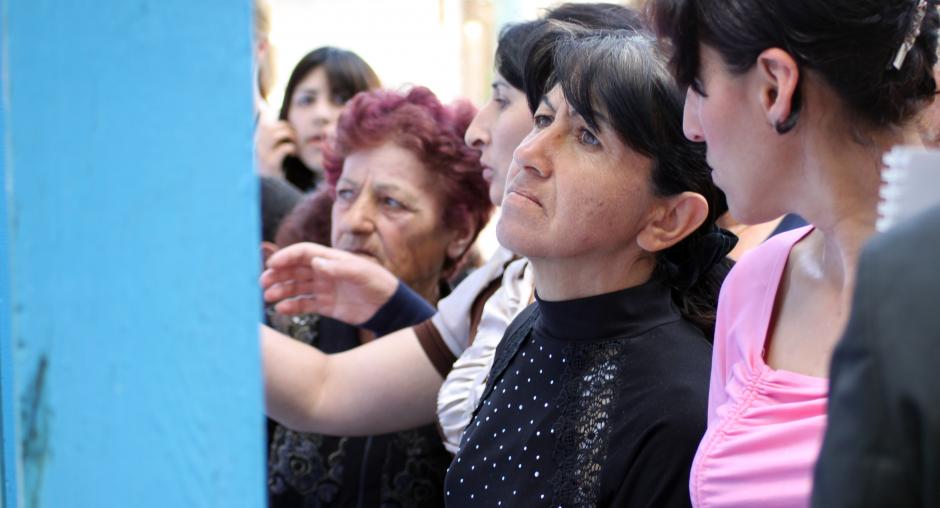Armenian elections competitive and largely peaceful, but shortcomings undermined confidence in the process, observers say

YEREVAN, 7 May 2012 – Sunday’s parliamentary elections in Armenia featured a vibrant and largely peaceful campaign, with overall balanced media coverage, but pressure on voters and a deficient complaints process created an unequal playing field, the international election observers said today.
Observers noted a campaign environment that generally respected freedoms of assembly and expression and candidates were, for the most part, able to campaign freely. But the general lack of confidence in the integrity of the process amongst political parties and the general public is an issue of great concern.
The elections were held under a new Electoral Code that provided a sound legal framework for conducting democratic elections, but stakeholders failed to implement important aspects of the new law and the manner in which complaints were dealt with undermined the right to effective legal redress.
“Armenia deserves recognition for its electoral reforms and its open and peaceful campaign environment but, in this race, several stakeholders too often failed to comply with the law and election commissions too often failed to enforce it,” said Francois-Xavier de Donnea, the Special Co-ordinator to lead the short-term OSCE observer mission and the Head of the OSCE Parliamentary Assembly delegation. “As a result, the international commitments to which Armenia has freely subscribed were not always respected.”
The process of candidate registration was inclusive overall. Despite improved legislation with regard to voter registration, observers said, that the accuracy of the voter lists and their potential misuse for electoral fraud added to the lack of confidence in the process.
“The high turnout of over 60 per cent, the wide age range among voters, and the clear understanding of the electoral process by young and old alike were impressive, but reports of widespread interference with the running of pollings stations, voters’ movement and casting of votes throughout the day by certain political parties raised serious concerns,” said Baroness Nicholson of Winterbourne, the Head of the Parliamentary Assembly of the Council of Europe delegation. “The authorities must address this unacceptable behaviour before the presidential election next year.”
“I cannot stress enough how important it is to see these elections and our preliminary findings in the broader context and as the beginning of the process, not the end,” said Krzysztof Lisek, the Head of the European Parliament delegation. “Our preliminary conclusions today and the final recommendations of the OSCE Office for Democratic Institutions and Human Rights, once they are published, should be taken as the goal to achieve in view of the upcoming presidential election.”
Election day was generally calm and peaceful, but marked by organizational problems and undue interference in the process, mostly by party representatives, the observers noted.
“The election campaign was open and respected fundamental freedoms, and the media offered broad and balanced coverage during the official campaign period,” said Radmila Šekerinska, the Head of the Election Observation Mission of the OSCE Office for Democratic Institutions and Human Rights. “Unfortunately, this was overshadowed by concerns over the accuracy of voter lists and violations of the Electoral Code that created an unequal playing field.”
For further information contact:
Thomas Rymer, OSCE/ODIHR, +374 96 698024 or +48 609522266, [email protected]
Neil Simon, OSCE PA, +374 96 245 623 or +45 60108380, [email protected]
Bogdan Torcatoriu, PACE, +374 98 355387 or +33 388 41 32 82, [email protected]
Emilia Gallego Perona, EP, +374 96 697903 or +32 4989 81364, [email protected]
